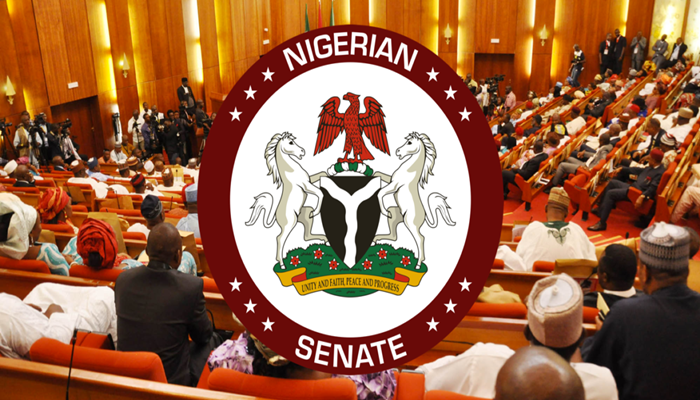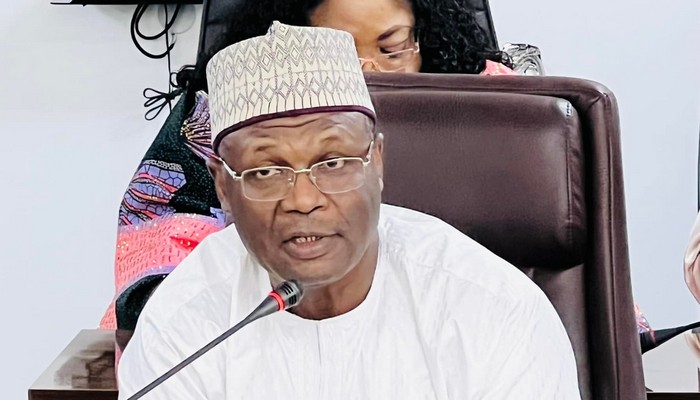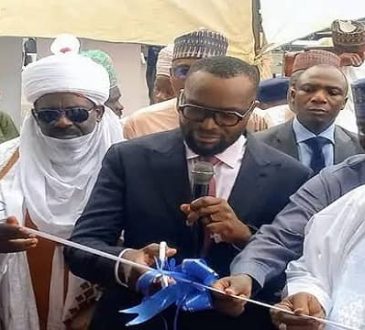
- seeks introduction of community policing
President of the the Senate, Ahmad Ibrahim Lawan, has said the Ninth Senate will summon the Inspector-General of Police, Mohammed Abubakar Adamu to brief the upper chamber on efforts in progress to address the escalating cases of insecurity in the country.
This was even as he disclosed that the Ninth National Assembly will vigorously pursue the implementation of community policing as a way of tackling the growing spate of killings and kidnappings across states in Nigeria.
Lawan, in a speech delivered to welcome lawmakers back from a six-week recess, said as part of measures to reform the country’s security architecture, the National Assembly will engage the Executive arm of government on the need for the immediate implementation of the recently launched National Security Strategy (NSS).
“The security situation in our country requires serious attention and due consideration by the Senate and indeed the National Assembly.
“Recently, the security in the country had deteriorated and the attendant loss of lives is not acceptable. We need to secure the lives and property of our citizens, as enshrined in our constitution.
“We all are witnesses to how our economy is also affected by the inclement security situation. Therefore, we need to speedily seek for solutions to fix the security problem bedeviling our dear country.
“There is urgent need for paradigm shift and reform of the architecture and structure of our security systems. Equally important is the citizen participation, and collaboration in providing security.
“In this regard, the Senate will engage the Executive arm of government to discuss the implementation of the recently launched National Security Strategy (NSS) 2019.
“For a long time, major stakeholders in the security of our nation and police authorities appear to achieve consensus on the necessity of introduction of Community Policing in the country.”
Lawan added, “the Senate is going to pursue the implementation of community policing vigorously. To this end, the police authorities will be invited to brief and update the Senate on the progress made so far.”
The Senate President while decrying what he described as the high level of inefficiency in the power sector said that the National Assembly will as a matter or urgency prioritize reforms in Power, Agricultural and Solid Minerals sectors, so as to shore-up efficiency and enable diversification of the Nigerian economy.
“It is an incontrovertible fact that, the power sector cannot function optimally and thrive under the current circumstances.
“The anticipated outcome of improvement in effectiveness and efficiency of the privatization process has not been achieved, and doesn’t look feasible.
“Therefore, we have to take all necessary steps to salvage this indispensable sector. The ensuing debate on the report of the Roundtable Discussions will no doubt reveal the actions that the Federal Government will need to take.
“The solid minerals sector was neglected after the discovery of oil. Though there have been attempts to revamp this sector, it is yet to make any meaningful contribution to our economy.
“Today, the solid minerals sector accounts for only about 0.3% of our Gross Domestic Product. It is obvious that we need to take a holistic look into the challenges in the sector.
“It has also been reported that, presently, about 80% of mining operators fall into the category of artisanal and small-scale miners. This deserves our attention, to ensure inclusion, effective and efficient operations by those involved.”
“Prior to the discovery of oil in Nigeria, agriculture was the mainstay of our economy. Agriculture was then the highest earner of foreign exchange for the country and Nigeria was also largely self-sufficient in food production.
“However, with the discovery of oil, the lure of petro dollars turned the focus of the country from agriculture. Despite the present efforts of the Federal Government to enhance the performance of the agricultural sector, there is still much to be done to make the sector perform optimally.
“No doubt, the agricultural sector is critical for the diversification of the economy of Nigeria, as we can create jobs, create wealth, earn foreign exchange and ensure food security.
“We, therefore, should ensure the restoration of the viability of this sector in order to utilize the abundant potentials and opportunities it offers”, Lawan added.






